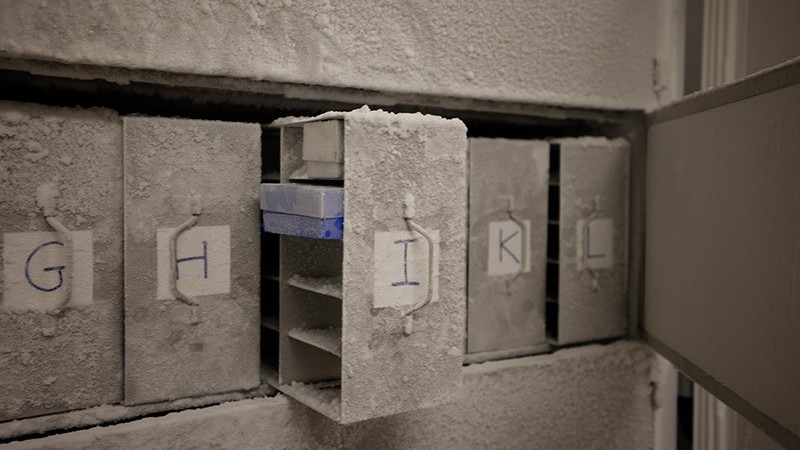
Zurich, Switzerland – In a groundbreaking initiative, scientists are deep-freezing human fecal samples in a Swiss “doomsday” vault to preserve microbial diversity for future generations. The University of Zurich currently houses over 1,000 samples, with plans to expand to 10,000 by 2029.
Immediate Impact
The project, known as the Microbiota Vault, aims to safeguard billions of microbes found in human waste, which could prove vital in addressing future health crises. According to a commentary published in Nature Communications, these microbes may hold the key to solving medical issues and restoring ecosystems.
“Microbe loss is associated with an alarming rise in chronic diseases, such as allergic, autoimmune, and metabolic disorders,” researchers noted.
Key Details Emerge
In addition to human samples, the vault stores nearly 200 types of fermented foods rich in beneficial microbes. The initiative seeks to include environmental microbes, ensuring a comprehensive microbial repository for future research and medical advancements.
The Swiss facility, inspired by Norway’s Svalbard Global Seed Vault, serves as a backup for microbial diversity, crucial for combating the decline in biodiversity due to human activities.
By the Numbers
- 1,204 fecal samples collected from seven countries
- 190 fermented food samples stored
- Target: 10,000 samples by 2029
- Current storage temperature: -112°F (-80°C)
Expert Analysis
Dr. Martin Blaser, director of the Center for Advanced Biotechnology and Medicine at Rutgers University, emphasized the urgency of preserving microbial diversity. “Human activities are depleting our microbiome, and there’s lots of evidence of that,” he stated.
Blaser also highlighted the potential of future scientific advancements to restore ecosystems using preserved microbes, despite current limitations in reintroducing frozen microbes effectively.
Background Context
The Microbiota Vault was launched in 2018, initially focusing on collecting and testing the feasibility of storing fecal and fermented food samples. Researchers have since gathered samples from countries including Benin, Brazil, Ethiopia, Ghana, Laos, Thailand, and Switzerland.
The initiative’s growth phase now aims to expand the collection, particularly focusing on microbes from threatened ecosystems. Plans are also underway to establish a permanent location for the vault, ideally in a colder climate like Switzerland or Canada.
What Comes Next
The expansion of the Microbiota Vault represents a significant step towards preserving microbial diversity for future generations. As Dr. Blaser remarked, “Maybe 100 years from now, having saved these microbes could prevent a major disaster.”
Researchers stress the importance of this initiative as an obligation to future generations, ensuring the availability of crucial microbes for potential medical breakthroughs and ecological restoration.





